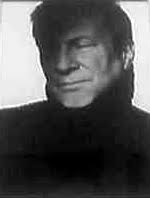Throughout his career Michael Wilmington worked for many different newspapers. He started writing movie reviews in Williams Bay, Wisconsin working for the local newspaper. Then in college he continued to be involved with the Film department and the annual movie festivals. His voice and accolades of his writing began to grow from coast to coast.
- In 1970 he wrote for The Velvet Light Trap
- In 1984 he started to write reviews for Isthmus, a weekly newspaper in Madison
- In 1980 to 83 he wrote for High Times magazine while living in New York
- In 1982 to 1992 he wrote for L. A. Weekly, L. A. Times, L. A. Style and L. A. Reader
- In 1992 to 2009 he wrote for the Chicago Tribune
“Michael Wilmington’s life is the movies,” proclaimed Dann Gire, a fellow film critic who knew Michael Wilmington well. From a young age Michael was mesmerized by the film craftsmanship of Orson Welles’s “Citizen Kane”, which remains one of the best films ever made. Coming from modest beginnings – raised by a single mother in William’s Bay, Wisconsin – he began to write about films and filmmakers before college and never stopped. As an undergraduate he cowrote – along with Joseph McBride – a book on John Ford, the great American director of films like “Stagecoach” and “The Man Who Shot Liberty Valance.”
As a film critic Michael worked for the L. A. Weekly, L. A. Style and the Los Angeles Times before taking a job with the Chicago Tribune prior to Gene Siskel’s demise. At the time Chicago had become a hub for excellent film criticism with Siskel and Ebert’s “At the Movies” television show, which started as a TV series by the local PBS station WTTW.
Michael wrote movie reviews for more than twenty years. He attended the celebrated Cannes Film Festival in France many times, won several Press Awards and he gained the respect of many filmmakers and directors: Robert Altman, Clint Eastwood, Tim Burton and Spike Lee among them.
He not only wrote about the movies but he also taught film courses at the University of Chicago. His depth of knowledge about films, not just Hollywood movies but international and new independent cinema, was astounding. He was an influential critic who produced reviews that were poignant and to the point; his reviews and feature pieces gathered
a readership that motivated movie-goers to go to the movies.
This documentary delves into a time of transformation when newspapers began to see a drop in readership due to the Internet. A new age of information was growing, where everyone had an opinion. Michael’s livelihood took a downward turn, while at the same time his beloved mother’s health began to deteriorate until she passed away at the age of 94.
This documentary will share how difficult times can stretch the truth and cause some to struggle to remain relevant in an ever changing world of good and bad information.
